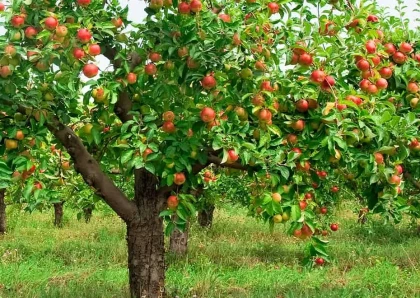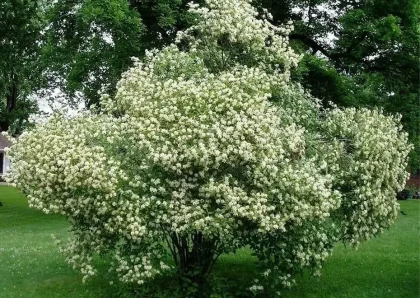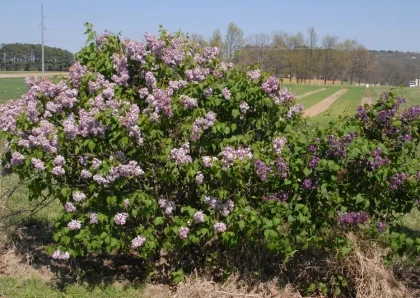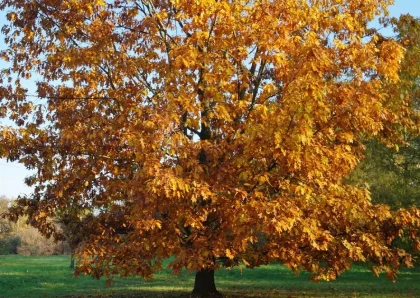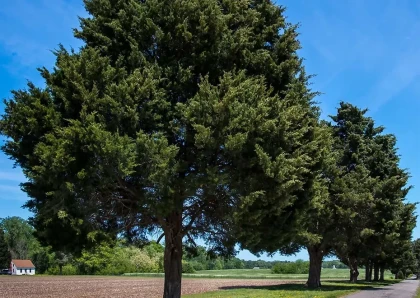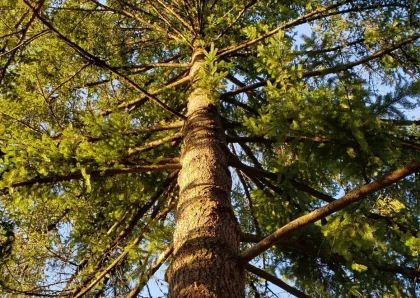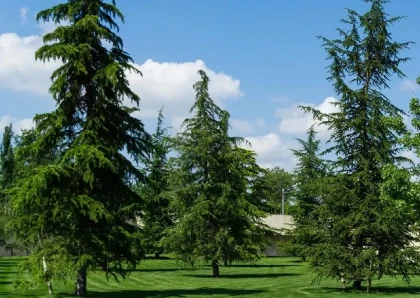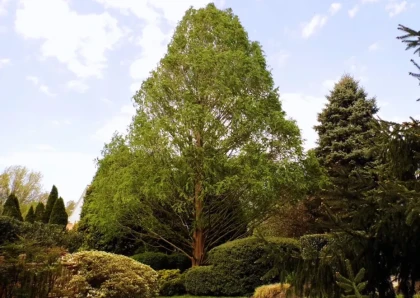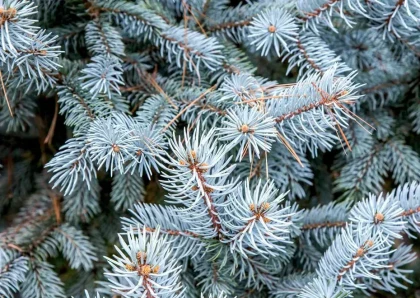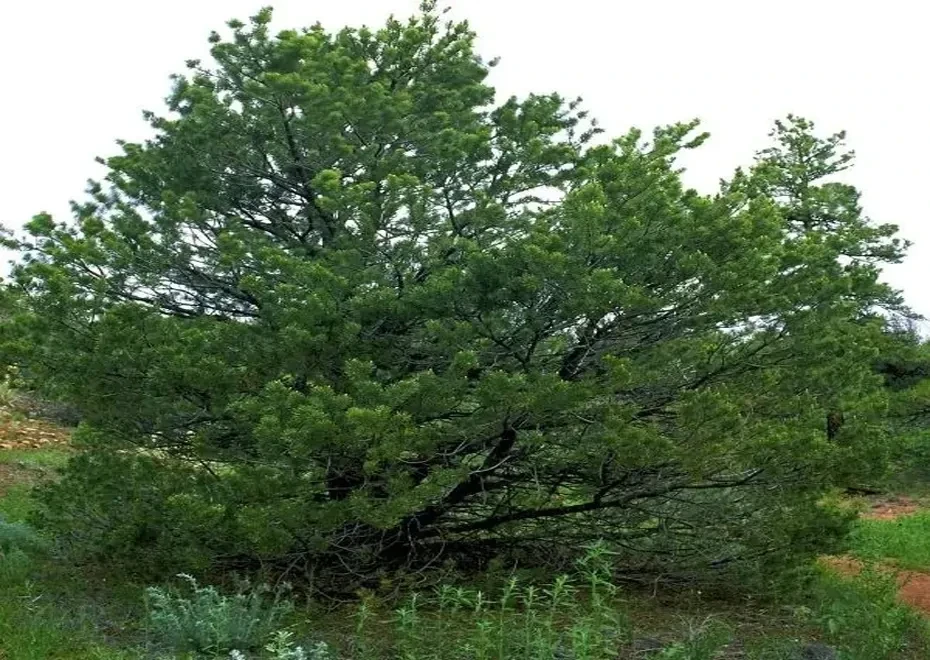
Single-Needle Piñón Pine
Overview
The Single-Needle Piñón Pine, also known as the One-Needle Piñon Pine or the Single-Leaf Piñon, is a remarkable evergreen tree that is indigenous to the arid regions of the southwestern United States. It is renowned for its distinctive feature of having only a single needle-like leaf per fascicle, which sets it apart from most other pine species.
This resilient tree is well-adapted to survive in harsh desert environments, thriving in dry, sandy soils and withstanding extreme temperature fluctuations. Its ability to flourish in such challenging conditions makes it an emblematic species of the arid landscapes it calls home.
One of the standout characteristics of the Single-Needle Piñón Pine is its ability to produce edible piñon nuts. These small, flavorful nuts are a valuable food source that has been cherished for centuries by various Indigenous cultures in the region. The piñon nuts are often harvested from the tree's cones and can be used in a variety of culinary applications or enjoyed as a nutritious snack.
The Single-Needle Piñón Pine is a treasure of the southwestern United States, embodying the strength and adaptability necessary to survive in arid landscapes. Its resilience, distinctive foliage, and production of edible piñon nuts make it a cherished and culturally significant tree in the region.
What are the different types of Single-Needle Piñon Pine?
- Utah Piñon Pine: This is the most common type of Single-Needle Piñon Pine. It is found in the mountains of Utah, Arizona, and New Mexico.
- Mexican Piñon Pine: This type of Single-Needle Piñon Pine is found in the mountains of Mexico. It is a slightly larger tree than the Utah Piñon Pine.
Different types of wood products can be made from Single-Needle Piñón Pine?
The wood of Single-Needle Piñon Pine is soft and lightweight. It is used for a variety of purposes, including:
- Firewood: Single-Needle Piñon Pine is a popular firewood. It burns hot and produces a lot of heat.
- Fencing The wood of Single-Needle Piñon Pine is used to make fencing. It is strong and durable.
- Pulp: The wood of Single-Needle Piñon Pine is used to make pulp for paper.
Benefits of Single-Needle Piñón Pine
- Aesthetically Pleasing: The Single-Needle Piñón Pine's unique solitary needle foliage adds visual interest to any landscape.
- Edible Nuts: This species produces piñon nuts, which have been enjoyed as a traditional food source for centuries.
- Drought Tolerance: Single-Needle Piñón Pine is well-adapted to arid environments, making it an excellent choice for water-wise landscapes.
Cons of using Single-Needle Piñón Pine
- Limited Commercial Use: The small size and localized distribution of Single-Needle Piñón Pine restrict its availability for commercial purposes.
- Slow Growth: It has a relatively slow growth rate, requiring patience when establishing it in the landscape.
Tips for planting and maintaining Single-Needle Piñón Pine
- Location: Plant in well-drained soil and provide full sun exposure for optimal growth.
- Watering: While this species is drought-tolerant once established, regular watering during its establishment period is crucial.
- Pruning: Minimal pruning is necessary, but removing dead or damaged branches can help maintain its health and appearance.
Conclusion
Single-Needle Piñón Pine is an appealing and resilient tree that brings unique foliage and edible nuts to landscapes in arid regions. While its wood has limited commercial use, its aesthetic and ecological benefits make it a valuable addition to suitable gardens and natural environments.
FAQs
- Can I harvest and eat the piñon nuts from Single-Needle Piñón Pine?
- Is Single-Needle Piñón Pine suitable for colder climates?
- Does Single-Needle Piñón Pine require special soil conditions?
Yes, the nuts are edible and have been a traditional food source for Indigenous peoples.
This species is best suited for arid regions and may not tolerate extremely cold temperatures.
Well-drained soil is crucial for the healthy growth of Single-Needle Piñón Pine.
No listings available
Related Products
Golden Jubilee Peach Tree
Prunus persica 'Golden Jubilee' is a specific cultivar of peach tree. It is a deciduous fruit tree belonging to the Rosaceae family. 'Golden Jubilee'...
Gray Dogwood
Cornus racemosa, commonly known as the gray dogwood or northern swamp dogwood, is a deciduous shrub native to eastern North America. It belongs to...
Common Fragrant Lilac
Syringa vulgaris, commonly known as the Common Lilac or French Lilac, is a deciduous shrub belonging to the genus Syringa in the olive family...
European Beech Tree
The European Beech (Fagus sylvatica) is a deciduous tree species native to much of Europe, including parts of western Asia. It is one of...
Emerald Arborvitae Tree
The Emerald Arborvitae (Thuja occidentalis 'Smaragd') is a popular evergreen tree or shrub in landscaping and gardening. It belongs to the cypress family (Cupressaceae)...
Eastern Red Cedar Tree
The Eastern Red Cedar, scientifically known as Juniperus virginiana, is a species of evergreen tree native to eastern North America. It belongs to the...
Douglas Fir Tree
The Douglas Fir (Pseudotsuga menziesii) is an evergreen coniferous tree that belongs to the Pinaceae family. It is one of the most common and...
Deodar Cedar Tree
The name "Deodar" is derived from the Sanskrit words "deva" (meaning "god") and "daru" (meaning "wood" or "tree"), hence it is often referred to...
Dawn Redwood Tree
The Dawn Redwood tree, scientifically known as Metasequoia glyptostroboides, is a deciduous coniferous tree that belongs to the family Cupressaceae. It is a unique...
Colorado Blue Spruce Tree
The Colorado Blue Spruce, scientifically known as Picea pungens, is a species of coniferous tree belonging to the Pinaceae family. It is native to...
Questions & Answers
What do you want to know about this product?
Reviews (5)
NutConnoisseur84
A Taste of the Southwest
The Single-Needle Piñón Pine brings a touch of the desert to my landscape, and its delicious piñon nuts make it truly exceptional.
DesertAdmirer19
Resilient Beauty in Harsh Climates
The Single-Needle Piñón Pine thrives in my arid garden, defying the odds with its unique foliage and ability to withstand drought.
CulturalArborist53
A Living Piece of History
Planting the Single-Needle Piñón Pine connected me to the rich cultural heritage of the Southwest, and its resilience is awe-inspiring.
NatureBountySeeker
A Gift from Nature
The Single-Needle Piñón Pine graces my landscape with its unique appearance and provides a bountiful harvest of delicious piñon nuts.
EcoExplorer76
A Symbol of Adaptability
The Single-Needle Piñón Pine's ability to flourish in challenging environments showcases nature's resilience and inspires me every day.




